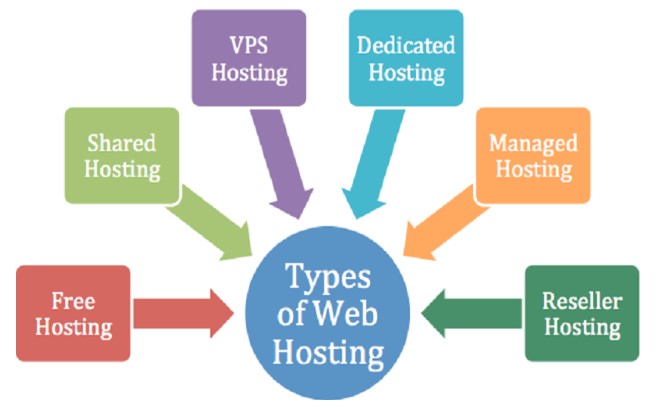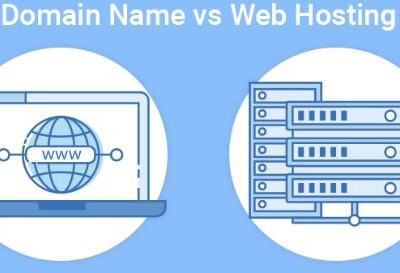Though web hosting is not a highlighted element on the internet, It’s very important for everything you love about being online.
Websites, podcasts, features, memes, online gaming, Netflix content– Whatever exists on a server that an individual or business or any other organization pays to keep up and active, needs a web hosting service.
In a word, web hosting is the invisible, but essential element of the online experience.
If you’re thinking about launching a website, there are some web hosting-related things you should know prior to starting the task.
Although it’s easy to sign up and use a web hosting provider’s website-building software, there are a lot of relevant terms and concepts you need to understand clearly.
Some of these terms and concepts are complex as well as confusing.
Before opening an account with any hosting provider company, you need to know the following things.
1. There are Huge Differences between Hosting Types

These terms represent various types of web hosting, however not every web host offers them all. In addition, there can be differences in hosting types in many ways.
Almost every web host offers the same or shared hosting. This form of web hosting is the cheapest one. In a shared hosting system, your website shares the same server and server resources with many other websites.
If your web hosting budget is limited, and your expectation is about small traffic, you can definitely choose shared hosting. For this type of web hosting, you need to pay $10 per month.
Small sites with a limited amount of bandwidth can serve their purpose through it.
Here you’ve to share resources with other sites. Hence, when, your-server-mate tries to attract a lot of visitors, then you should be prepared for the occasional slowdown of your site.
You can also have free web hosting but has its own inevitable problems like typically frequent ads and low server specifications.
Big business organizations who want big traffic for their sites should choose VPS or Dedicated hosting. Both VPS and dedicated hosting offers very strong server specs.
VPS or Virtual Private Server is a powerful version of shared hosting. Here, much fewer websites share the resource of a server and these are a little more segregated, too.
VPS is costlier than shared hosting, but you need to pay less than $100 per month.
And in the case of dedicated hosting, your site is placed on a single server and no other sites are here to share the place with yours.
Thus, it can go through a server’s full power and capacity. As this is the most expensive type of hosting, you may have to pay $ 100 or more per month to use its power.
The reseller Hosting system provides you with the opportunity to start your own branded web hosting business. If you go for it, you don’t have to worry about building the infrastructure from the very beginning.
For example, WordPress hosting gives you the chance of creating a site in an environment that serves the world’s most popular content management system.
Besides this, cloud hosting is an entirely different system that gives you the opportunity to easily utilize website power across multiple servers. Not every web host offers this service and the pricing for these hosting varies.
2. Bandwidth and Data Transfer are Not the Same
To define the amount of data the website serves to the visitors, sometimes, both the terms “Bandwith” and “Data Transfer,” are used interchangeably. But, according to the technical definition, the two terms are not the same.
The total amount of data transferred at a time is known as ‘Bandwidth.’ And data transfer is the actual amount of information that is going to be used over a given period of time.
That time is typically counted as a month. It can be cleared with the following example: a web host may have a maximum of 5GB bandwidth while depending on the hosting plan your site may allow just 1GB of data transfers per month.
In case your website exceeds its monthly data transfers because of, for say, a Reddit hit, the web host may reduce the data transfer speeds or charge you a fee as a penalty. It may even suggest you go to a higher web hosting tier. So, you’ve to know your data limitations before falling into situations like this.
3. Unlimited Isn’t Truly Unlimited

With the offer of unlimited storage or a monthly data transfer facility, Web hosts will tempt you to sign up for accepting their hosting plans. However, it, in fact, is not an honest deal, in total form.
It can’t be straightly said that these web hosts were lying. But, the hosting providers claiming ‘unlimited’ storage or data transfers have limitations, most of the time, that vary from company to company.
For example, FatCow offers ‘oodles’ of disk space, and states that there’s no maximum limit on users’ content. This is possible as long as the user remains fully complaints with the company’s terms of service and utilizes storage for the normal operation facility provided by the FatCow website.
It’s like the bottomless buffet service provide by any restaurant, whose service can be just cut off if the supply of raw materials is finished.
Data transfers and unlimited storage facilities are, in general, associated with shared or WordPress plans.
Within limits, they let you the facility to utilize your best capacities. For example, if your blog secures a steady amount of traffic, it can be called a good position.
The things you can do within your so-called ‘unlimited offering’ can be fixed earlier by discussing with a customer service representative of the web host provider.
4. The Hard Disk Drive/Solid-State Drive Tradeoff
If you’re in search of signing up for shared web hosting, you’d have to receive a place on a conventional hard disk drive (HDD) server. There is a good advantage of an HDD server– at a cheap rate, it can offer large storage space.
If you go for a more powerful hosting offer like VPS and dedicated, You’d be provided with the chance to create a website on a solid-state drive (SSD).
SSD-based servers are super-fast storage units. Its technology is very expensive Hence, SSD-based servers normally possess much smaller storage than HDDs.
SSD-based servers rarely possess a 1TB capacity, but it’s a common capacity in the HDD-based server.
5. Most of the Time a Linux Server Will Do

Almost all web host offers Linux as the operating system. Their servers are also got powered by Linux.
If, in fact, a web host lacks a free, open-source operating system, isn’t much appreciated in reviews.
Even if you’re not familiar with this operating system, You don’t have to follow any special task to create a website.
if your site needs an open-source, server-side web-application framework like ASP.NET, you just need to run with the windows server operating system.
Your written script and produced web pages will only work in a Windows-based environment.
There’s an extra benefit of using Linux. Microsoft apps like MS Office or Outlook integrate with the server easily. Furthermore, windows servers cost $10 to $ 20 more than their Linux counterparts.
The limitation is windows servers are not compatible with open-source software like Linux until you don’t make some advancements.


















Comments